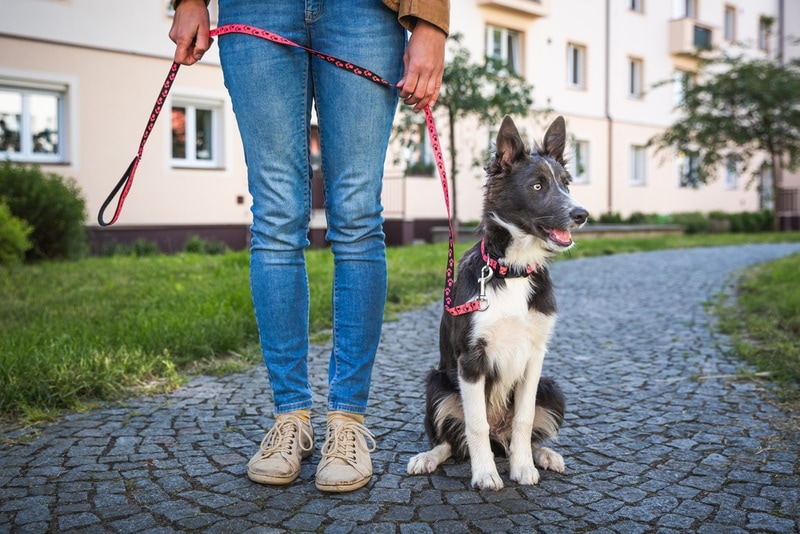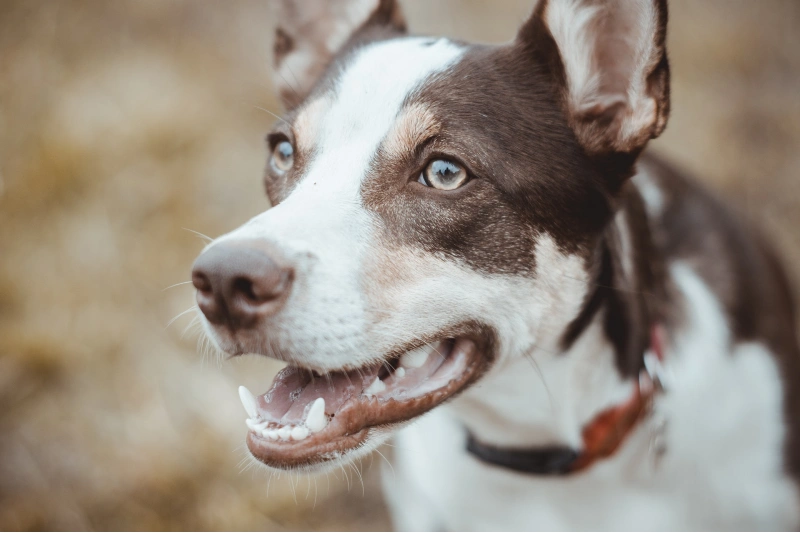Chihuahuas vs Pitbulls: The Differences (With Pictures)

Updated on

Click to Skip Ahead
You’ve finally decided to get a dog. Huzzah! Selecting a canine companion is a big deal that requires careful consideration of various factors, including your lifestyle, living space, and personal preferences. Among the wide variety of dog breeds available, Chihuahuas and Pitbulls stand out as two iconic choices, each with its own unique characteristics. In this article, we’ll explore the traits, physical qualities, and needs of Chihuahuas and Pitbulls to help you determine which breed might be the right fit for you.
We hope you finish reading feeling well-equipped to make one of the most exciting choices of your life.
At a Glance

- Average height (adult): 6–9 inches
- Average weight (adult): 3–6 pounds
- Lifespan: 12–20 years
- Exercise: 15–30 minutes a day
- Grooming needs: Minimal for short-haired types, moderate for long-haired types
- Family-friendly: Yes
- Other pet-friendly: Usually
- Trainability: intelligent and easy to train using positive reinforcement
- Average height (adult): 17–21 inches
- Average weight (adult): 30–60 pounds
- Lifespan: 8–15 years
- Exercise: 1–2 hours a day
- Grooming needs: Low-moderate
- Family-friendly: With appropriate training from puppyhood
- Other pet-friendly: Yes, with appropriate training
- Trainability: Intelligent and eager to please
Chihuahua Overview
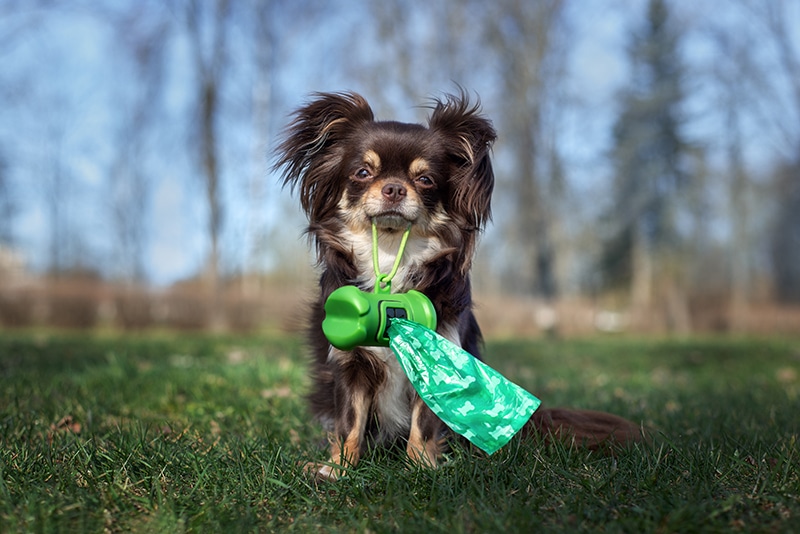
Size & Body Type
Chihuahuas are among the tiniest dog breeds, typically weighing only 3-6 pounds and standing around 5 to 8 inches tall. Their compact size makes them well-suited for apartment living or individuals with limited space. Despite their small stature, Chihuahuas are known for their big personalities and often believe (and act like!) they are much larger than they actually are.
Personality & Character
Chihuahuas are renowned for their bold and confident personalities. Despite their small size, they often display a level of courage that can surprise many. They may be reserved around strangers but form strong bonds with their owners and families. Chihuahuas can be loyal and affectionate, seeking attention and warmth (both physically and emotionally) from their human companions. Often exhibiting a “Napoleon Complex”, they showcase courage and assertiveness beyond their size.
Exercise & Activity Levels
Due to their small size, Chihuahuas don’t require as much exercise as larger breeds. Short walks, play sessions, and interactive toys are usually sufficient to meet their activity needs. However, Chihuahuas are often energetic and may enjoy engaging in silly playtime with their owners.
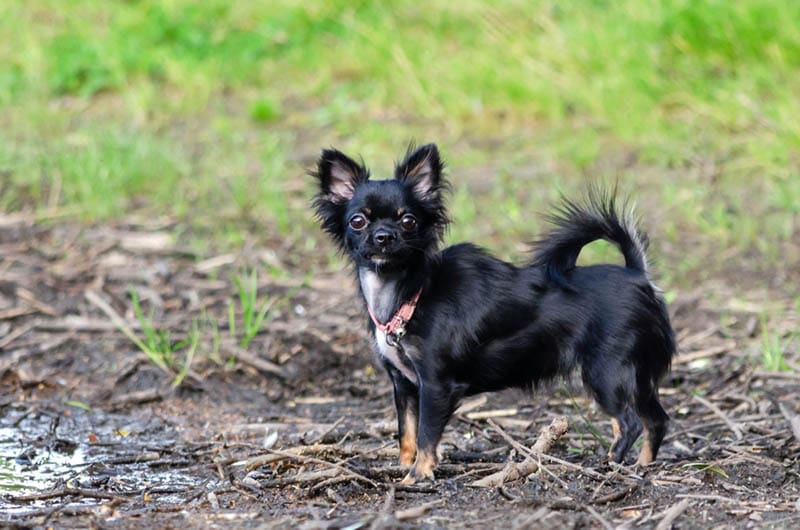
Training & Socialization
Training a Chihuahua can sometimes be challenging due to their strong-willed nature. When working with them, positive reinforcement techniques, patience, and consistency are key. Socialization is crucial to prevent them from becoming overly protective or aggressive towards strangers.
Grooming
Chihuahuas come in various coat types, including short-haired (smooth coat), long-haired, and intermediate coat. Their coat colors and patterns range from solid colors to brindle, fawn, black and tan, chocolate, and more. Their distinctive apple-shaped head, large expressive eyes, and ears add to their charming and adorable appearance.
With their tiny size, Chihuahuas require minimal grooming. Regular brushing to keep their coat in good condition, dental care, and occasional nail trimming are typically sufficient. Their small size also means they have lower food and healthcare costs than larger breeds.
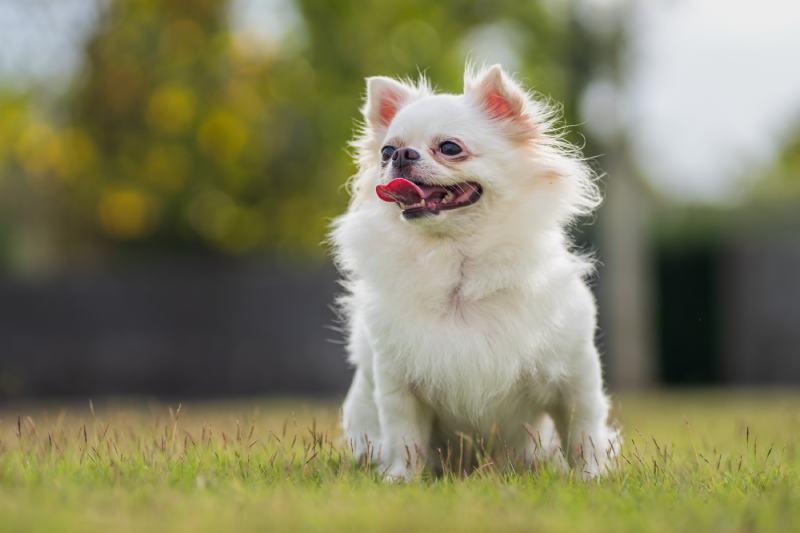
Families & Children
Chihuahuas can be suitable for families with older children who understand how to handle small dogs delicately. Due to their small size, they may be more prone to injury if mishandled, so supervision is crucial. Early socialization with children can help ensure a positive relationship.
Suitable For:
With proper care and training, chihuahuas can be an appropriate dog for anyone. Their size makes them perfect for smaller spaces as long as they get regular exercise. They’re relatively portable; with a proper carrier and harness/leash, your chihuahua can accompany you to all kinds of everyday destinations. Children and chihuahuas are a good match as long as the children are taught to respect their pooch’s boundaries and not play with them too roughly.
Pitbull Overview
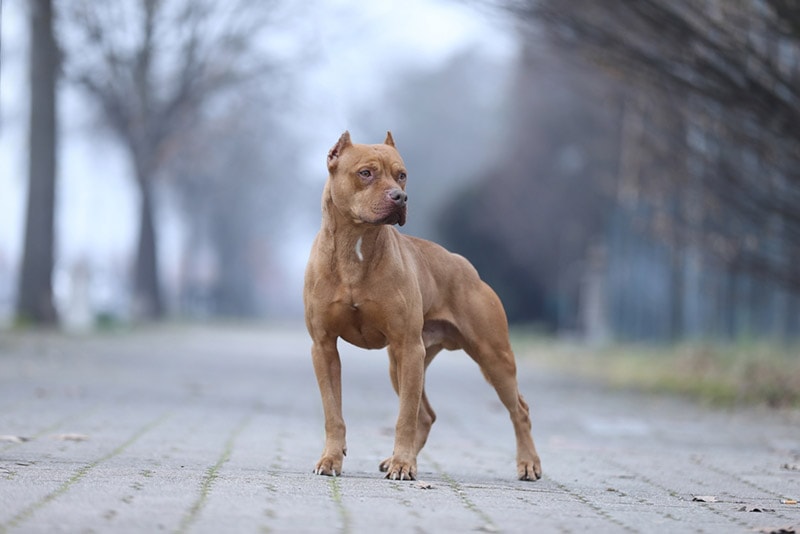
Size & Body Type
Pitbulls are medium to large-sized dogs, with males typically weighing between 35 to 60 pounds and females ranging from 30 to 50 pounds. Their muscular build and strength require a more spacious living environment. A Pitbull may feel right at home if you have a larger home or ample backyard.
Personality & Temperament
Pitbulls have a somewhat unfair reputation as aggressive and unruly, but the reality is that they can be incredibly loving, loyal, and gentle when properly socialized and trained. They are known for their affectionate nature towards family members, making them excellent family pets. However, investing time in training and socializing them from a young age is essential to ensure a well-mannered and well-adjusted pet.
Exercise & Activity Levels
Pitbulls are known for their athleticism and stamina. These dogs thrive on physical activity and mental stimulation. Regular walks, vigorous play sessions, and activities like agility training can help satisfy a Pitbull’s need for exercise. If you’re an active individual or enjoy outdoor activities, a Pitbull could be an excellent companion for you.
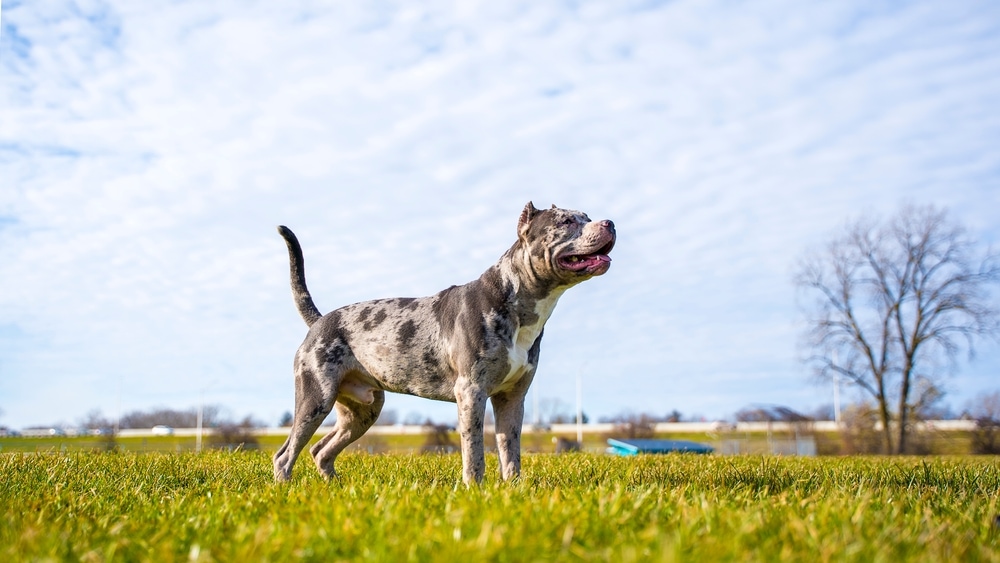
Training & Socialization
Pitbulls are intelligent and eager to please, making them relatively easy to train. Positive reinforcement and consistency are effective methods for shaping their behavior. Proper socialization is vital to ensure that Pitbulls grow up to be well-behaved and comfortable around other people and animals.
Grooming & Care
Pitbulls have short, sleek coats that are easy to care for. Regular brushing helps minimize shedding, and they only need occasional baths. Like all dogs, dental care and routine vet check-ups are important for their overall health. Additionally, Pitbulls may require a bit more food and larger accessories, such as collars and beds, due to their size.
Families & Children
Contrary to misconceptions, well-socialized and properly trained Pitbulls can make wonderful family pets. They are often affectionate towards children and can be protective of their family members. However, due to their strength and energy, it’s important to supervise interactions between Pitbulls and young children.
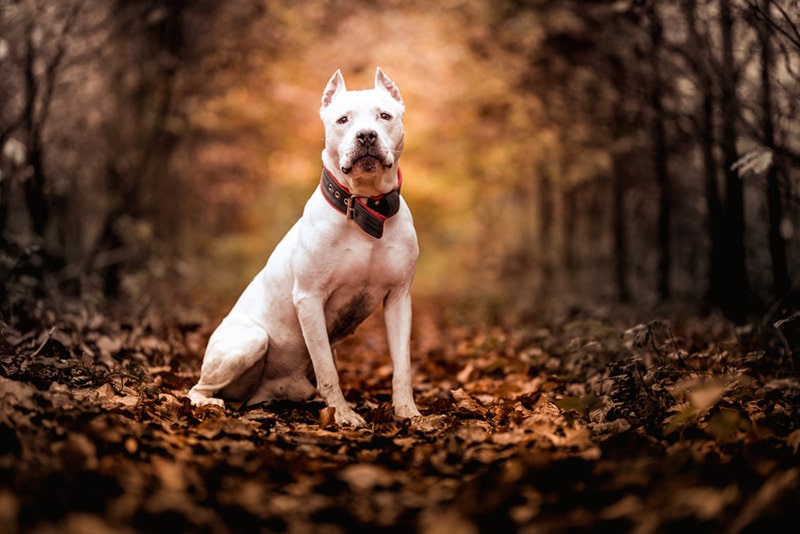
Suitable For:
Pitbulls can be appropriate companions for responsible, experienced owners who are committed to providing proper training, socialization, and care. They thrive in homes where they receive love, attention, and consistent boundaries. Pitbulls are often excellent family dogs, displaying affection and loyalty to their human pack. Active individuals or families with an outdoor lifestyle may find Pitbulls to be great companions for activities such as hiking or running.
It’s essential that potential owners understand the breed’s characteristics, invest time in training, and adhere to breed-specific legislation if applicable in their region.
 What Do Pitbulls and Chihuahuas Have in Common?
What Do Pitbulls and Chihuahuas Have in Common?
While Chihuahuas and Pitbulls are so different in size, appearance, and some aspects of their temperament, there are a few interesting similarities between these breeds. It’s important to remember that individual dogs within each breed can vary widely, and these generalizations may not apply to every Chihuahua or Pitbull. Here are a few similarities that could help you choose which breed is right for you.
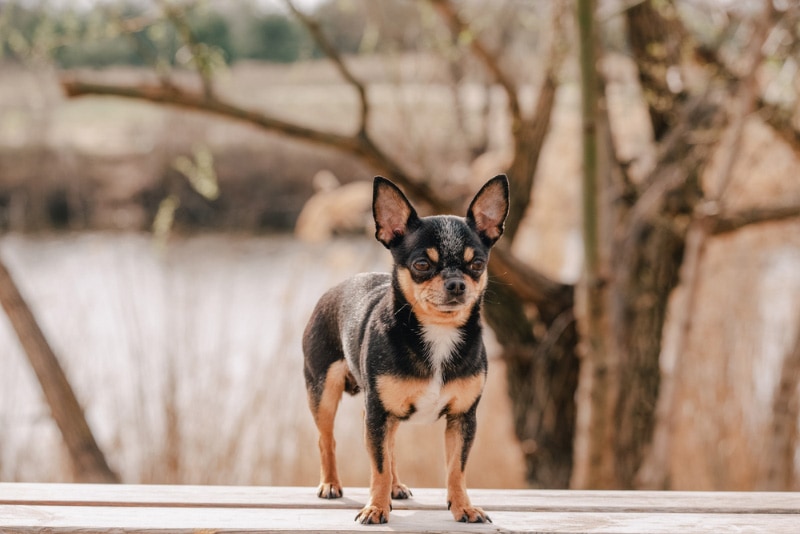
- Loyalty: Both Chihuahuas and Pit Bulls are known for their loyalty to their owners. Once they form a bond, they can be devoted and affectionate companions.
- Adaptability: Both breeds can adapt to different living situations. Due to their small size, Chihuahuas are well-suited for apartment living, while Pit Bulls, with proper training and socialization, can adapt to various environments.
- Need for Socialization: Socialization is crucial for both Chihuahuas and Pit Bulls. Exposure to different people, environments, and other animals from a young age helps them develop into well-behaved and confident dogs.
- Trainability: While they may have different energy levels and attention spans, both Chihuahuas and Pit Bulls are trainable. Positive reinforcement methods work well for teaching them commands and good behavior.
- Affectionate Nature: Despite their size differences, both breeds can be affectionate. Chihuahuas may seek out laps for cuddling, while Pit Bulls, often called “nanny dogs,” can be loving and gentle with their families.
- Energy Levels: Chihuahuas and Pit Bulls are both energetic breeds, albeit at different ends of the spectrum. Chihuahuas have bursts of energy and can be quite active, while Pit Bulls, being larger and more muscular, require more substantial exercise to meet their energy needs.
- Playfulness: Both breeds tend to be playful, enjoying interactive toys, games, and engagement with their owners. Playtime is an essential aspect of their mental and physical well-being.
- Protectiveness: Chihuahuas and Pit Bulls can exhibit a certain level of protectiveness towards their owners. While Chihuahuas may be more vocal in expressing their alertness, Pit Bulls may display protective behaviors through their physical presence.
It’s crucial to recognize that individual temperament and behavior can vary widely within each breed. Additionally, responsible ownership, proper training, and socialization play significant roles in shaping the behavior of any dog, regardless of its breed. Always consider the unique needs and characteristics of each dog as an individual.
Conclusion
Ultimately, whether a Chihuahua or a Pitbull is the right choice for you depends on various factors, including your living situation, activity level, and preferences for a canine companion. Both breeds have unique qualities and can make loving and loyal pets when provided with the appropriate care, training, and socialization.
Before making a decision, spend time with each breed, consider your lifestyle, and, if possible, consult with breed experts or animal professionals to ensure a harmonious match between you and your new furry friend.
See also:
Featured Image Credit: (L) Larky78, Shutterstock | (R) Anna Krivitskaya, Shutterstock


